David S. Weaver Full Interview
Model
Video
Abstract
Dr. David Weaver describes his youthful interest in gasoline-engine powered go-karts, home-built radios, servicing cars, and how this led him to study mechanical engineering. He left his first job with the Ford Motor Company in Oakville to return to university for a Master's degree on satellites for Spar Aerospace and then a PhD in mathematics and physics. He found a university position and began researching nuclear for Ontario Hydro Research and hydroelectric power generation for Nova Scotia Power. He contributed to a model study of flood protection for the City of Venice conducted by the Dutch Hydrodynamics Laboratories in Delft. He worked on a fusion energy project the Joint European Taurus (JET) in England. In retirement, he has worked for the Canadian Nuclear Safety Commission, and with Babcock and Wilcox, Ontario Power Generation, and Atomic Energy of Canada. He talks of the evolution of computational tools from slide rules to computers and their applications to autonomous vehicles – and the importance of selecting the appropriate tool to max the complexity of a problem.
Member of
